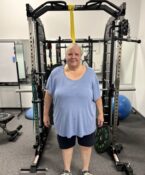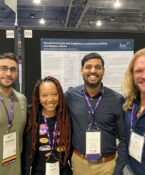UNTHSC physicians propose improved management of high-risk stroke patients
A team of UNT Health Science Center physicians has proposed a new medication management plan that could improve outcomes and enhance the quality of life for patients at high risk of stroke.
Atrial fibrillation is an abnormal, irregular heart rhythm that affects as many as 2.2 million people in the United States. People with the disease, which can cause fatal blood clots, are five to seven times more likely to suffer a stroke.
The most commonly prescribed oral anticoagulant for people with atrial fibrillation has several drawbacks, including bleeding risks, potential for negative interactions with food, alcohol and other drugs, and a high level of required monitoring, said Dr. Salvatore Rosanio, MD, Professor of Internal Medicine. However, newer alternative anticoagulants may more effectively prevent strokes without those side effects.
In a review article published in the International Journal of Cardiology, Dr. Rosanio and other physicians propose an anticoagulation management algorithm to help clinicians make more informed decisions about which anticoagulants to use in patients.
"This algorithm we are proposing helps physicians determine which medication to use based on each patient’s individual characteristics," Dr. Rosanio said. "Not only does that do a better job preventing strokes, but fewer side effects mean a better quality of life for the patient."
Joining Dr. Rosanio in the review article were Dr. Abdul Keylani, MD, UNTHSC Assistant Professor of Internal Medicine; Dr. Darrin D’Agostino, DO, UNTHSC Chairman of Internal Medicine; Dr. Craig DeLaughter, MD, an electrophysiologist at HeartPlace in Fort Worth; and Dr. Antonio Vitarelli from the Cardio-Respiratory Department at La Sapienza University in Rome, Italy.





Social media